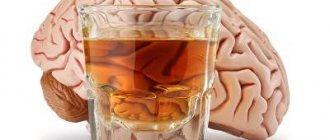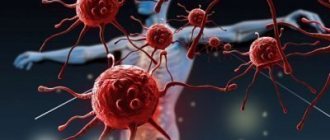Stress and psychological strain increase the risk of cardiovascular disease and mortality. It has long been known that heart health is associated with a person's psychological well-being.
Tension and stress can trigger the development of heart disease and cause narrowing of the coronary arteries. This increases the risk of heart attack, cardiac arrhythmia, atrial fibrillation, and death.
Tension and stress affect both men and women. But these negative effects of psychological states do differ between the sexes. The reasons for these differences are not yet fully understood.
Stress and your heart
The heart consists of two parts, like the brain - the right and left hemispheres. (Dr. J. Andrew Armor coined the term "heart brain" in 1991. His research showed that the heart's complex nervous system could well be considered a "little brain.") Paul Pearsall, in his book The Heart Code, writes that the heart brain is much more complex than is commonly believed. The heart is far from a simple pump; it plays the true cellular symphony that is the essence of our being. The muscles of the heart store memory, just like the cells of our brain.
Research from the HeartMath Institute shows that the heart sends more information to the brain than the brain sends to the heart. Heart rhythms affect the brain's perception and ability to process information; Signals sent from the heart to the brain can influence emotions. This newest research proves that, on a physical and energetic level, the heart plays a much more important role in our lives than Western culture ever imagined. Research from the Institute of HeartMath confirms that negative emotions create real chaos in the nervous system, while positive ones have exactly the opposite effect. By focusing on positive emotions, you can boost your immune system and experience other physiological benefits.
So what comes first: “the egg or the chicken”? Does our health and happiness depend on the heart - or on the mind? From our thoughts, feelings - or from how we take care of our physical condition? There seems to be no opposition between them: a person consists of mind, body and “spirit”, or the life force itself, and only a holistic approach to achieving harmony will help achieve the desired quality of life. Whatever aspect comes first for you, maintaining a positive outlook will always remain a key factor in your overall health.
Who is more likely to suffer from heart pain after stress?
The impact of stress on human health is underestimated by ordinary society. All people are nervous due to personal, family problems, work problems and many others. Even children who experience great informational and emotional stress at school face problems. But not everyone has heart problems. Most often, neuroses, as a result of cardiovascular disorders, manifest themselves in people:
- exposed to infections of a viral and bacterial nature;
- leading an unhealthy lifestyle (bad habits, sleep disturbances, etc.);
- experiencing sexual dysfunction;
- experiencing long-term emotional distress;
- whose work activity causes overwork.
This problem is widespread in adolescence. The main role is played by a physiological factor – hormonal changes in the body. In the period from 12 to 14 years, the child goes through puberty. The amount of hormones increases, which is why organs and systems begin to work more intensively, in new conditions. Therefore, in a situation where, under stress, the amount of hormones increases even more, a teenager may experience symptoms of cardialgia. Similar stresses also appear in women in situations with the onset of menopause.
The heart remembers
Several years ago, Rose met a heart transplant survivor, a cheerful westerner. Before the heart transplant, she did not like spicy foods, did not drink alcohol, and was generally not interested in sports. After the heart transplant, she constantly wanted to eat nachos and jalapenos, add hot sauce to any dish, drink beer, and also... watch basketball.
The changes were so strange that the woman decided to find out more about her donor. It turned out that he was a young African-American basketball player who was in a car accident. The woman contacted his mother, told him about her new tastes and was very surprised to learn that nachos, beer and basketball were her donor's three main hobbies. The grateful woman was sure that his young heart, beating so strongly in her chest, had somehow transferred into her body the memories that she now treasured.
How to deal with the effects of stress?
Learn the correct response to a stressful situation so that the body's reaction to stress is minimal.
Some people are quite calm due to their temperament. But very emotional people who react sharply to the slightest shock in life should visit a psychologist
or a psychotherapist. The specialist will teach you how to manage your reaction to life’s collisions.
In addition, get out of stress correctly if it does occur. If possible, exercise
immediately after a stressful situation, the body mobilized to fight will receive the necessary release.
It’s hard to imagine an office worker who, after being scolded by management, left the office and went for a run. But there is always the possibility of some kind of physical activity - run up the stairs, do a few push-ups or pull-ups. After this, the body's reaction to stress will be much easier.
Stress turns into memories stored in our heart
In most cases, heart attacks do not happen out of the blue. To get a heart attack, you need to exhaust yourself for years. We have already said that the heart is capable of “remembering” information and, as a result of the constant influence of the negative past, muscle memory remains overstrained. If the heart collects more past negative experiences than it can withstand, it seems to shout to us: “Enough!” It’s like an angry white shark attacks us and causes terrible pain, and often death.
One day we had the opportunity to talk with a woman who had a truly unique experience. Having passed the threshold of her fortieth birthday, Aimee found herself on the verge of a nervous breakdown and decided to eliminate all external stressors from her life. She had no husband or children; she sold her thankless business and plunged into a relationship that at that time seemed to her like a dream relationship. When they failed, Aimee was shocked and depressed; For the first time in her life, her blood pressure rose. She no longer needed to take care of business and a man, so she moved to the village and began to lead a very simple life: she worked several days a week, walked to work, worked without stress.
The woman understood how lucky she was: unlike many, she had the opportunity to conduct such an experiment. However, she was extremely surprised when it turned out that, even despite her calm lifestyle, she was nervous about any, even the most insignificant, reason. For her, this became a real revelation: she continued to reflexively produce a stress reaction to the smallest stimuli, even when there were no obvious external prerequisites for this, and sometimes for no reason at all. Apparently, she became extremely susceptible to stress, which became a habit for her. Aimee realized that the reason lay in her habit of reacting to triggers, and not in real life conditions, and this was the reason for the constant feeling of depression and tension. When Aimee took responsibility and tried to cope with stress, she managed to climb out of the “hole” and find happiness again. She focused on the good aspects of the present and the pleasant memories of what was left behind.
Reaction to stress
Stressful situations can unfold quickly (acute stress) or “undermine” a person’s health day after day (chronic stress). In the first case, the body's reaction may manifest itself in the form of takotsubo stress cardiomyopathy or the so-called “broken heart syndrome”. With this disease, the heart muscle temporarily loses its ability to contract, the apex of the left ventricle expands, and the thickness of the wall decreases. A person may die from a dangerous arrhythmia, wall rupture, or heart failure.
Chronic stress affects more than just your heart and blood pressure levels. It changes behavior, disrupts the functioning of the endocrine glands, which collectively leads to serious consequences. If acute stress either kills a person or makes it possible to survive the situation and try to move on, then chronic overstrain often seems to push one to drink alcohol and smoke. These addictions and other bad habits associated with them change lifestyle and further worsen the condition of patients.
Prolonged nervous tension can trigger the following changes:
- To “calm down,” a person begins to consume sweets, baked goods, and other high-calorie foods.
- A high content of trans fats and animal fats disrupts the balance between the fractions of good and bad cholesterol, and atherosclerosis progresses.
- High-calorie foods with a high glycemic index can provoke insulin resistance and lead to type 2 diabetes, a complication of which is damage to small vessels.
- The persisting “combat” concentration of cortisol also negatively affects carbohydrate metabolism.
- Body weight increases and the load on the cardiovascular system increases. Hypertension occurs.
- The walls of blood vessels become denser and their lumen narrows. The likelihood of a stroke or heart attack increases.
How to recognize someone who will cope worse with stress and negative emotions? It is worth paying attention to the following destructive traits in his behavior:
- works too much;
- tries to “take on” and heroically solve too many problems;
- cannot get enough sleep regularly, sometimes forgets to sleep;
- has difficulty making important decisions, hesitates;
- often rushes, but cannot do the job well enough;
- eats food to relax and calm down;
- drinks and/or smokes;
- eats food very quickly;
- irritable, speaks quickly.
If you notice such personality traits in yourself or a loved one, you should take care of your health in advance: learn to “let go” of events, take your time, and not “eat and wash down” stress.
"Good" and "bad" stress
We usually think that stress is something bad; and everyone reacts to stress differently. For example, a surprise birthday party will delight some, but provoke a panic attack for others. “Good” stress can push us to achieve our goals, for example when we are studying for a test or submitting a paper on a deadline; in this case, having completed what we planned, we feel satisfied.
When we return from ongoing negative stress, such as at work (which can be caused by bullying from a boss or co-workers, or physically dangerous working conditions), to normal life (for example, picking up children from school, cooking dinner, and doing laundry), we spread stress not only on relationships with people, but also directly into our hearts.
In a state of nervous overstrain, it is rarely possible to cope well with affairs. We overreact to circumstances that normally would not even bother us. The “good woman” turns into a “fiend of hell.” She is frustrated, angry and sometimes hostile; to put it mildly, she can be called “gloomy”, to put it more harshly - “bitch”. The “nice guy” becomes intemperate, impatient, and downright rude.
The feeling of guilt that arises later only contributes to the overall stress state. Tension increases, and over time this all leads to increased blood pressure. According to medicinenet.com, some studies have linked stress to changes in blood clot patterns, which also increase the risk of heart attack.
How to help your heart during stress. Differential diagnosis of organic angina from psychogenic
It should be noted that the weaker sex is much more susceptible to such a condition as psychogenic angina, with the vast majority of cases recorded in middle-aged women. Painful sensations often develop after suffering various shocks or against a background of stress. They are characterized by a gradual increase and change in pain intensity. Their duration ranges from several hours to several days under particularly severe stress.
According to the results of numerous studies, thin people are more susceptible to this form of angina. But this does not mean that obese people are immune from this pathology.
It is important to understand that stress and the heart are closely related. One of the most criteria for psychogenic pain is previous stress. Also, heart pain after stress cannot be relieved by traditional methods, that is, nitroglycerin preparations. This is considered one of the most important signs that will help distinguish the psychogenic nature of angina.
The criterion for excluding organic pathology is that the pain does not in any way become stronger during physical activity. And just with ischemic angina, pain increases significantly even when walking or during examinations such as a treadmill test or bicycle ergometry.
Another point by which you can exclude coronary heart disease and think in the direction of psychogenic angina is the fact that if the heart hurts a lot after stress, then with age the nature of the pain does not change much. In organic pathology, on the contrary, it intensifies significantly over time; the longer the disease lasts, the stronger it is. The psychogenic nature of the disease means that the symptoms do not worsen without any stress or shock.
The following problems can serve as triggers:
- Depression;
- Sleep disturbance or insomnia;
- The appearance of anxiety;
- The development of neuroses that progress, psychosomatic pathology develops.
In the vast majority of patients treated for neurosis or stress, cardiac symptoms go away on their own, that is, they do not require any treatment. It is extremely rare to encounter relapses of this pathology.
The main causes of psychogenic angina are:
- Lability of the nervous system with increased nervousness, excitability, irritability;
- Feeling restless;
- Long-term or chronic stress loads;
- A type of nervous system when a person becomes fixated on any problems that may not even concern him.
Your heart
There is good in each of us, even if we have temporarily turned into real “fiends of hell.” How can we return ourselves to the state of a “good person”: loving, open, compassionate, full of hope? You can learn simple self-calming techniques that don’t require anything from us, just think and devote a little time to them: we’re talking about meaningful breathing, meditation, or even regular walks.
These simple actions, which we have complete control over, can dampen the overreactions caused by the heart's muscle memory, which cause high blood pressure and premature physical failure of our hearts. Mindfulness is the only predictor of longevity. The more conscious we are of our own reactions to stressful situations and the more actively we try to calm ourselves in stressful situations, the more chances we give ourselves to gain the necessary strength and move on.
Our world lives at such speeds that many simply do not want to spend twenty minutes sitting in a comfortable position and meditating. However, more and more tools are emerging every day that can achieve similar results much faster, such as the Aetas app, which is designed to have an effect in as little as three minutes or less.
It doesn't matter how you learn the necessary skills: on your own, as your grandmother learned to take deep breaths and count to ten to avoid breaking down, or with the help of modern devices, either way, quick ways to calm your mind and heart will bring you will benefit greatly. The main thing is to realize how important it is to allow yourself to devote a short time to this. After all, we simply won't be able to be there for our loved ones if we allow ourselves to get caught up in stress. Everyone wants to live a good life - and our hearts will only be happy about it.
Literature
- Philip G. Zimbardo, Rosemary KM Sword. “Living and Loving Better with Time Perspective Therapy. Healing from the Past, Embracing the Present, Creating an Ideal Future.” McFarland & Company, Inc., Publishers, Jefferson, North Carolina, USA. 2017
See also:
- Stress and haste sickness
- Seasonal stress
↑ What hormones are produced during stress?
Under the influence of stress, a whole chain of biochemical reactions is triggered. All of them are aimed at protecting the body from an unfavorable environment and ensuring adaptation to a stressful situation. Trying to answer the question of what the stress hormone is called, you can find a whole list of concepts.
↑ Adrenaline
Stress hormones and their effects on the body vary, but they still have some common features. Adrenaline is one of the main stress hormones. It is characterized by a complex effect on the body. On his shoulders lies the most important task of restoring muscles and returning them to their usual mode of operation. Thanks to adrenaline, the frequency of contraction of the heart muscle is regulated. It affects the functioning of the gastrointestinal tract and blood vessels.
Note! An increase in adrenaline in the blood is observed in extreme situations when a person experiences fear, pain, or anger. In this way, the body prepares to withstand stress.
The person begins to act more actively. He reacts promptly to any stimuli. Its memory is mobilized, the load on the myocardium and central nervous system is reduced.
↑ Beta-endorphin
This hormone is produced in the intermediate section of the pituitary gland. It is even responsible for allowing a person to experience stress. The effect it has:
- anti-shock;
- analgesic (pain reliever);
- tonic effect.
↑ Thyroxine
Thyroxine synthesis occurs in the thyroid gland. Mental activity, activity and lightness of people directly depend on it. At a time when a person experiences severe stress, Thyroxine increases blood pressure. It speeds up the metabolic process, speed of thinking, and heart rate.
↑ Norepinephrine
Accompanies stress and simultaneously increases physical activity. A classic example would be a situation where a person, being nervous, cannot sit still. The influence of norepinephrine is noted both on sensory perception and the degree of brain activity.
Experts note the pain-relieving effect of norepinephrine in extreme situations. It is a kind of analgesic that suppresses pain. That is why a person in a state of passion is able to forget about any injuries and poor health for a short time.
↑ Cortisol
Responsible for the regulation of insulin and glucose, as well as their normal production. In a tense state, the level of the hormone increases noticeably. If levels remain consistently high, hypertension, elevated sugar levels and malfunction of the thyroid gland occur.
Long-term exposure to cortisol leads to negative consequences such as decreased immunity, increased bone fragility and tissue destruction.
The adverse effects of cortisol can be reflected in increased appetite and the appearance of fat folds. A person who wants to lose weight and has a high level of this hormone is unlikely to be able to get rid of the hated kilograms. First of all, he needs to normalize the functioning of the hormonal system.
↑ Prolactin
A hormone produced in the pituitary gland. Directly responsible for the function of the genitourinary system. Regulates all existing types of metabolism. In case of stress, it immediately increases. Pathological processes in the form of hypothyroidism, anorexia, polycystic ovarian disease, cirrhosis of the liver are a direct result of hyperprolactinemia caused by regular nervous tension.
Phases of stress development
At various stages of development, you can clearly see how stress affects the human body. The scientist Hans Selye divided this process into several phases. His method is based on identifying three stages of disease progression.
All stages proceed sequentially, smoothly flowing into each other. The initial state of the human body is described as shock. Afterwards, the body begins to adapt to the changed conditions. The outcome depends on how strong a person is emotionally: whether the body will overcome an obstacle or whether a stressful state will arise.
According to Selye, the development process is divided into three phases:
- First stage (shock state). A person is overcome by a feeling of anxiety; he cannot find a place for himself. From a physiological point of view, this is explained by an active increase in the synthesis of adrenal hormones in the cortex. The body tries to cope with the problem by producing more energy to adapt.
- The second stage or “resistance phase”. At this stage, a kind of immunity is developed, the body becomes more hardened. But at the same time, the production of the corresponding hormones decreases. This is why the sensations become calmer and the state becomes balanced. There are no symptoms of anxiety.
- The third stage is characterized by exhaustion. The body gets tired of fighting, and stress squeezes out the last juices. The ability to resist is reduced below the required level. The feeling of anxiety returns. If the stressor exerts its influence for a long time, then changes in the physiological state occur. They are expressed in irreversible deformations of the adrenal cortex and other internal organs.
↑ How to reduce hormone levels?
How to control the stress hormone, how to reduce its synthesis? It is not difficult to answer these questions. The level of stress hormones depends on the psycho-emotional state a person is in. Substances are released in unfavorable situations, so it is necessary to minimize such exposure. What does this require?
Firstly, you need to maintain a healthy lifestyle. This means that you need to work well and rest just as well, without critical shifts in one direction or another. Fresh air supplies oxygen, which is valuable for blood vessels, so walking should become a daily ritual.
Modern people rarely play sports. In the meantime, it is not necessary to devote most of your free time to any one type of time. It is enough to choose a set of exercises that a person finds easy to do and interesting for himself. After this, you need to set a training schedule so that you can devote up to 50 minutes to such activity every day.
https://www.youtube.com/watch?v=GEoaI4GYkrM
The hardest thing is to avoid stress. It is clear that it will not be possible to completely get rid of them. But you can train yourself to respond adequately to any negative loads. Yoga, meditation, and the use of various relaxation techniques help in mastering this skill. Particularly impressionable people are not recommended to view negative news or shocking content on the Internet.
To provide your body with additional strength, you will need to reconsider your diet. It is also advisable to reduce your caffeine intake by focusing on plant-based foods. You need to drink more water.
It is important to force yourself to look positively at everything that happens and smile more often. A person suffering from stress needs to find any available reason for joy. This could be watching a positive film, meeting good people, communication with whom gives positive emotions. The best cure for stress is sincere laughter. All this in combination prevents cortisol levels from reaching critical levels.
Effect on the pancreas
The effects of stress on the human body are manifested by the release of various chemicals into the blood. The pancreas is responsible for this process. During stressful situations, insulin levels in the blood rise sharply. Due to this, diabetes can develop. In combination with eating problems and disorders of the gastrointestinal tract, the risk of obesity increases.
Stress also affects the reproductive system. Under the influence of stressors, a person loses the desire and opportunity to have children. The instinct to procreate disappears because stress hormones suppress sexual function and increase the level of other substances that also suppress the reproductive system. For this reason, some women find it very difficult to experience all the delights of motherhood.
Impact on the psychological component
To some extent, stressful situations are even beneficial for humans. With short-term exposure, an improvement in resistance abilities is observed, and the development of inflammatory processes is inhibited. In addition, under stress, active formation of glucose occurs in the liver, and fat deposits are burned more efficiently.
However, constant exposure to an unfavorable environment only leads to suppression of all vital functions. It is the psychological component that suffers the most. People often suffer from insomnia; most people experience chronic lack of sleep. Due to the fact that patients try to forget themselves with the help of alcohol and cigarettes, addiction occurs.
The consequences of stress greatly depend on the general condition of a person and the stability of the individual. Under the same conditions, people with different character types behave completely differently. It is interesting that stressful situations are most easily tolerated by unbalanced people, because such individuals do not have time to concentrate and focus their attention on the problem that has arisen.
Effect on the gastrointestinal tract
The process of digesting food during stressful situations is very difficult. However, for many people, food is the best way to relieve stress. The body's predicament prevents nutrients from being processed properly.
This problem is explained by the fact that stressors can change the amount of secretion released by the digestive organs. As a result, the perception of food by the mucous membrane, sensitivity, blood circulation and absorption are impaired. Since the brain and intestines are connected by nerve fibers, changes in the composition of the microflora and changes in the functional properties of the gastrointestinal tract under the influence of negative factors are quite understandable.
But there is also feedback. The organs of the gastrointestinal tract themselves can cause stress. What a person eats directly affects the general condition of the body. Any worries associated with the stomach or intestines immediately provoke the sending of corresponding signals to the brain.
It is the main organ of the central nervous system that gives the body the command to defend itself in the form of stress or depression. So, if we consider the mechanism of the occurrence of a depressed state, these organs form a single system with their inextricable connection.
Ways to cope with stress
The main ways to reduce stress on the human body are as follows:
- normalization of respiratory function with the help of special exercises;
- feasible physical activity (any sport, morning exercises, jogging);
- positive interactions with others, especially friends and family;
- expressing negative emotions through creativity (art therapy);
- communication with animals for medicinal purposes (animal-assisted therapy);
- phytotherapy;
- meditation, yoga and other spiritual practices;
- consultations with a psychologist.
Having understood yourself and recognized the cause of stress, getting rid of such a problem will not be difficult. By following these tips you can significantly reduce your exposure to stressful situations.












